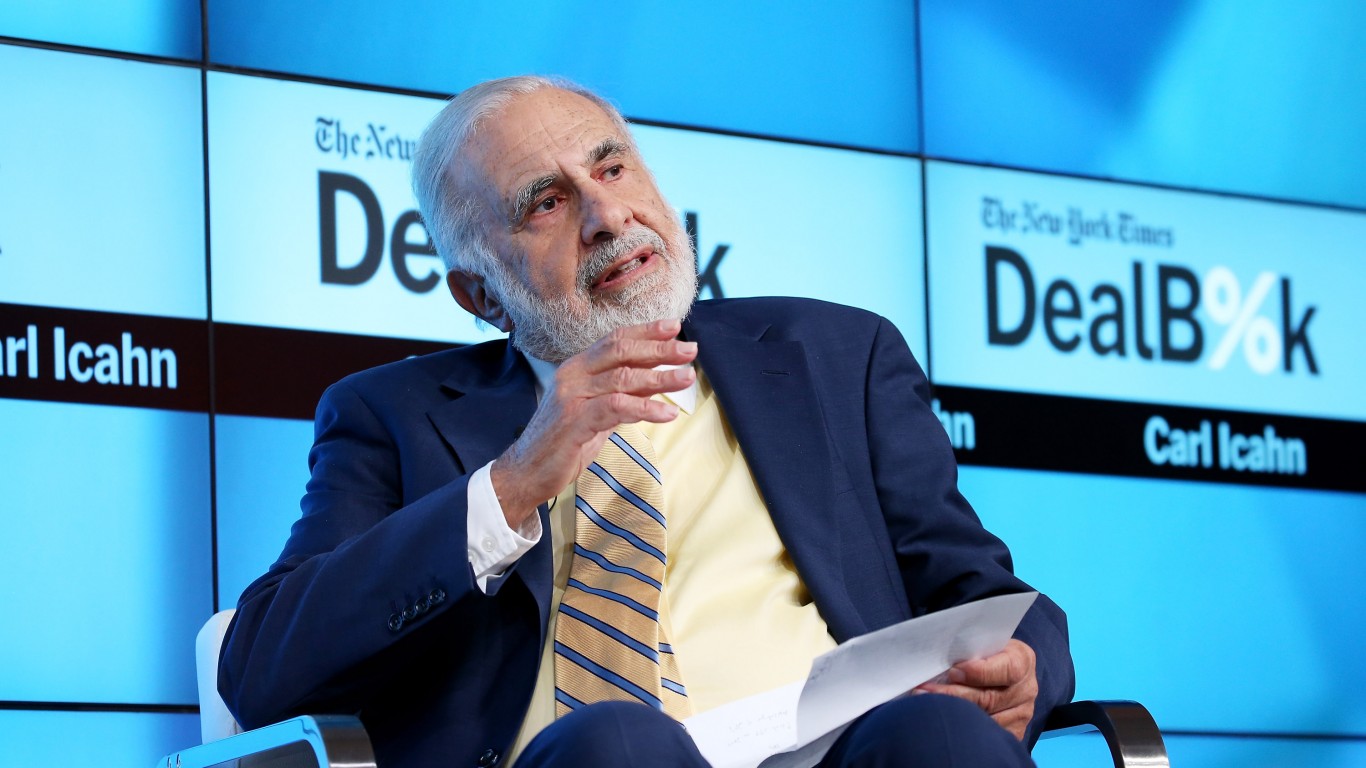Investing
Before the Bell: Regional Banks Sink, Icahn Shorted, Fed Rate Call Due

Published:

Premarket action on Wednesday had the three major U.S. indexes trading up slightly. The Dow Jones industrials were up 0.04%, the S&P 500 up 0.13% and the Nasdaq 0.13% higher.
The Federal Reserve’s Federal Open Market Committee meeting concludes Wednesday with an announcement of the federal funds rate. The current range of 4.75% to 5.00% is expected to rise by a quarter point to a new range of 5.00% to 5.25%. Tuesday’s sell-off indicated more investor concern for an economic slowdown and no movement on a solution to an increase in the debt ceiling.
The Energy Information Administration (EIA) will release its weekly petroleum inventory report after markets open Wednesday. Economic jitters sent crude prices down by 5.4% on Tuesday, and crude traded down another 2.3% early Wednesday at $70 a barrel.
Late Tuesday, the American Petroleum Institute reported that commercial crude inventories fell by nearly 4 million barrels last week and that production dropped by 100,000 barrels per day. Last week the EIA reported a drop of just over 5 million barrels in U.S. inventories. Falling inventories combined with falling prices are not common crude trading. A slowdown in the global economy has traders worried, really worried.
U.S. regional banks took a big hit on Tuesday. PacWest Bancorp (NASDAQ: PACW) dropped nearly 28% on the day and traded down another 12% in Wednesday’s premarket sessions. Metropolitan Bank Holding Corp. (NYSE: MCB) fell 20.5% on Tuesday and traded down 8.5% early Wednesday. Western Alliance Bancorp. (NYSE: WAL) retreated 15% on Tuesday and traded down another 7% Wednesday morning. Even big banks like JPMorgan Chase & Co. (NYSE: JPM) and Bank of America Corp. (NYSE: BAC) dropped 1.6% and 3.0%, respectively, on Tuesday.
Even though PacWest and Western Alliance reported first-quarter earnings that indicated that withdrawals had stabilized, regional banks’ balance sheets could be in more serious trouble if the economy slows, consumers stop buying and loans do not get repaid.
Short seller Hindenburg Research on Tuesday issued a report on Icahn Enterprises L.P. (NYSE: IEP) and its billionaire namesake, Carl Icahn, essentially accusing the fund of being a Ponzi scheme:
In brief, Icahn has been using money taken in from new investors to pay out dividends to old investors. Such ponzi-like economic structures are sustainable only to the extent that new money is willing to risk being the last one ‘holding the bag.’
Before U.S. markets open on Wednesday, 84 companies are scheduled to report quarterly results. More than 130 firms will release their results after markets close.
Lithium miner Livent Corp. (NYSE: LTHM) traded up nearly 9% in Wednesday’s premarket session after reporting first-quarter earnings and revenue that easily beat consensus estimates. The company raised revenue and EBITDA guidance for fiscal 2023. Livent expects revenue growth of 26% to 38% and adjusted EBITDA growth of 45% to 64% this year. CEO Paul Graves said the company is on track to add 4,000 metric tons of volume available for sale this year and an “incremental 10,000 metric tons available in 2024 year over year.”
Advanced Micro Devices Inc. (NASDAQ: AMD) reported better-than-expected earnings per share and revenue, but revenue fell by 9.1% year over year. Second-quarter revenue guidance was in line with the consensus range, but about $1.35 billion below year-ago revenue of $6.55 billion. Clearing a low bar is not impressing investors. Shares traded down about 7.7% in Wednesday’s premarket.
Here is a look at how the markets fared on Tuesday.
Ten of 11 market sectors closed lower on Tuesday. Energy (−4.28%) and financials (−2.3%) posted the day’s biggest losses. Consumer cyclicals (0.16%) was the only sector to show a gain. The Dow closed down 1.08%, the S&P 500 down 1.16% and the Nasdaq down 1.08% on Tuesday.
Two-year Treasuries dropped 17 basis points to end the day at 3.97%, and 10-year notes lost 15 basis points to close at 3.44%. In Wednesday’s premarket, two-year notes were trading at around 3.94% and 10-year notes at about 3.41%.
Tuesday’s trading volume was above the five-day average. New York Stock Exchange losers outpaced winners by 2,398 to 603, while Nasdaq decliners led advancers by about 8 to 3.
Are you ahead, or behind on retirement? For families with more than $500,000 saved for retirement, finding a financial advisor who puts your interest first can be the difference, and today it’s easier than ever. SmartAsset’s free tool matches you with up to three fiduciary financial advisors who serve your area in minutes. Each advisor has been carefully vetted and must act in your best interests. Start your search now.
If you’ve saved and built a substantial nest egg for you and your family, don’t delay; get started right here and help your retirement dreams become a retirement reality.
Thank you for reading! Have some feedback for us?
Contact the 24/7 Wall St. editorial team.